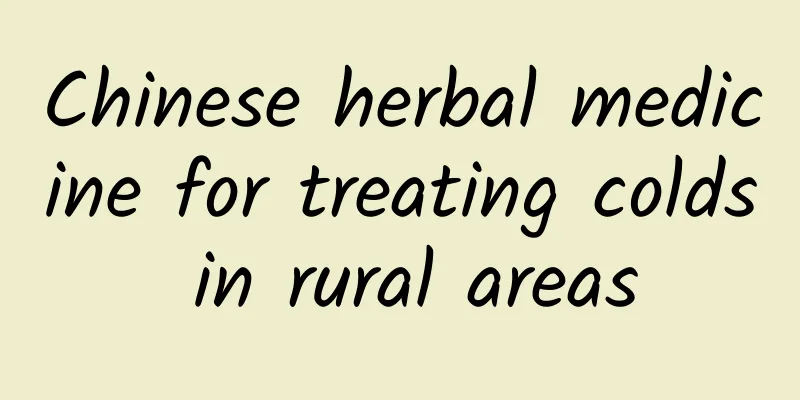Wen Dan Tang for treating depression

|
Many people know that people with depression are prone to suicide. Generally speaking, to treat depression, many people choose Western medicine and psychological counseling. But did you know that Wen Dan Tang is actually also very effective in treating diseases such as depression? Today, we will share with you the principle of Wen Dan Tang in treating depression from the perspective of traditional Chinese medicine. We hope that you will learn more about the treatment methods of depression. Clinically, depression is divided into four types: stagnation of qi, stagnation of qi and blood stasis, deficiency of blood in the heart and liver, and stagnation of phlegm and qi. For Qi stagnation type, use Danzhi Xiaoyao Powder or Diankuang Mengxing Decoction with modifications; for Qi stagnation and blood stasis type, use Gexia Zhuyu Decoction with modifications; for heart and liver blood deficiency type, use Tianwang Buxin Dan with modifications; for phlegm and Qi stagnation type, use Shiwei Wendan Decoction with modifications. Treatment focuses first on sleep, then diet, and then other symptoms.
Clinical manifestations Depression is a mental illness characterized by emotional depression, accompanied by a series of physical symptoms, and manifests as low vitality, namely, a decline in sleep, appetite, sexual desire, social adaptability, etc. Clinically, both mental and physical symptoms can be seen, and patients often seek medical treatment due to physical symptoms. The main mental manifestations are depression and lack of energy; insomnia, characterized by difficulty falling asleep and early awakening; irritability or sadness and crying, memory loss, inattention, poor learning or work ability; often accompanied by inferiority complex, self-guilt, self-blame, fear, anxiety, uneasiness, autism (unwilling to go out, unwilling to see people), etc. Some are accompanied by obsessive-compulsive disorder, loss of interest in everything around them, or even suicidal tendencies, and severe cases may lead to suicidal behavior. The main physical manifestations are fatigue, inexplicable discomfort or pain all over the body; loss of appetite, abdominal distension or pain, indigestion, constipation or diarrhea; headache, dizziness, palpitations; low libido, impotence, premature ejaculation, and irregular menstruation. Patients often seek medical treatment for specific symptoms such as fatigue, palpitations, headache, dizziness, insomnia, stomach problems, irregular menstruation, and impotence. Through a large number of clinical observations, it is found that the vast majority of patients have obvious mental triggers for their illness, such as high work pressure, long-term mental stress, emotional factors, etc. Some elderly people suffer from this disease due to poor organ function and other diseases, which seriously affect their quality of life and cause depression. In addition, some menopausal women are also prone to mild depression.
Etiology and pathogenesis Regarding the understanding of the etiology and pathogenesis of this disease, Danxi's "Six Depressions" states that "When Qi and blood are in harmony, all diseases will not arise. Once there is depression, various diseases will arise. Therefore, most diseases in the human body are caused by depression." It believes that the cause of this disease is emotional injury and liver qi stagnation. Therefore, it is proposed that the onset and transmission pattern of this disease is that the disease initially affects the qi, and the long-term disease affects the blood and the five internal organs. Just as it is said in "Lei Zheng Zhi Cai·Depression": "The depression caused by the seven emotions initially damages the Qi, then affects the blood, and finally causes fatigue." At the beginning of the disease, it is still in the Qi level, and the main manifestations are mental symptoms and symptoms of Qi stagnation such as depression, emotional instability, insomnia, dreaminess, chest and flank discomfort. If the disease is not treated properly at this stage, it will further develop and affect the blood. Stagnation of Qi makes it unable to promote blood circulation, which will lead to blood stasis over time, and blood stasis further blocks the circulation of Qi. The two interact and influence each other, forming a vicious circle. As the disease progresses, the condition gradually affects the five internal organs. The disease initially affects the liver, and then spreads to the heart, spleen, stomach, kidneys and other internal organs, resulting in symptoms of multiple organs. The difficulty in treating this disease lies in the fact that symptoms of multiple organs coexist and are mixed with deficiency and excess. "Lingshu Kouwen" says: "The heart is the master of the five internal organs and six bowels... Therefore, sadness, sorrow and worry will cause the heart to move, and when the heart moves, the five internal organs and six bowels will all shake." Dysfunction of internal organs can lead to superficial symptoms such as qi stagnation, blood stasis, fire depression, and phlegm accumulation, as well as underlying deficiencies such as deficiency of heart yin, spleen and stomach qi deficiency, and liver and kidney deficiency. From the perspective of modern medicine, patients suffer from long-term mental depression, poor blood circulation in the brain, and insufficient oxygen supply, which leads to insufficient excitability of the central nervous system, resulting in low vitality of the human body, and physical and mental symptoms of low vitality such as indigestion, anorexia, low libido, memory loss, and depression. Syndrome differentiation The basic pathogenesis of depression is liver qi stagnation. Therefore, soothing the liver and relieving depression is the best way to treat depression. On this basis, combined with the patient's clinical symptoms, we can clarify the stage of the disease, the underlying deficiency or the actual excess, and determine the appropriate treatment method. It is worth noting that long-term lack of sleep in patients with depression aggravates mental fatigue and depletes essence and blood, and is the main factor aggravating physical and mental symptoms. Poor digestive function is another important reason that aggravates the disease. Therefore, improving the patient's sleep and eating habits is the key to successful treatment. The treatment of this disease should focus on sleep first, diet second, and then consider other symptoms. According to different clinical manifestations, this disease can be divided into the following types: Qi stagnation type The condition of this type of patients is relatively mild and they are still in the Qi stage. It is often manifested as depression, emotional instability, insomnia, poor diet, sore throat, chest and flank discomfort, dry and loose stools, or premenstrual breast pain, irregular menstruation, dysmenorrhea, etc. in women, with thin white or greasy tongue coating and a stringy pulse. If the symptoms of Qi stagnation are obvious, the rise and fall of Qi movement is abnormal, and there is a tendency to affect the water and blood, such as depression, fullness and distension in the chest and flanks, phlegm, sighing, inexplicable irritability, swollen eyelids, dark red tongue, thick white tongue coating, and a wiry and slippery pulse. You can use Wang Qingren's Dian Kuang Meng Xing Decoction (peach kernel, angelica root, green peel, vinegar bupleurum, pinellia, akebia, tangerine peel, dried tangerine peel, mulberry bark, perilla seed, red peony root, and licorice) with modifications to regulate qi, resolve phlegm, and promote blood circulation. If the stagnation of liver qi is severe and qi stagnation turns into fire, the symptoms of fire stagnation are obvious, accompanied by headache, irritability, oral ulcers, dry stool, red and dry tongue, little or yellow tongue coating, etc., Danzhi Xiaoyao Powder can be used with modifications. On the basis of the basic formula, Chinese jujube seeds and cypress seeds are often added to nourish blood and calm the mind, and Albizzia julibrissin bark, Polygonum multiflorum, etc. are added to soothe the liver and relieve depression, and improve the patient's sleep. If the patient has poor appetite, add yam, Atractylodes macrocephala, Scorched Sanxian, and Chicken's Gizzard Stone. For abdominal distension, add costus root, Amomum villosum, and Magnolia officinalis. For irritability and restlessness, add calcined dragon bone and oyster shell. For severe depression, add a little mint. For stomach heat, bitter mouth, and acid reflux, add a little Coptis chinensis and Gentiana scabra. For kidney deficiency, add Cuscuta australis and cinnamon bark. For women with irregular menstruation, add Siwu Decoction and other products to regulate menstruation and nourish blood.
Qi stagnation and blood stasis type Its clinical symptoms include the symptoms of qi stagnation and blood stasis as believed by traditional Chinese medicine theory and the comprehensive symptoms of low whole-body vitality as believed by modern medicine, such as insomnia, irritability, indigestion, anorexia, stomach pain, flank pain, headache, memory loss, inexplicable sadness or pain all over the body, low libido, and depression; or women have irregular menstruation, dysmenorrhea, dark menstrual blood, and blood clots; pale face, dark lips, dark eyes, dark purple tongue with ecchymosis or petechiae, and a thin and restless pulse. From the perspective of modern medicine, such patients suffer from insufficient blood supply to the brain tissue and reduced excitability of the central nervous system, which leads to a decline in overall vitality. The prescription is Gexia Zhuyu Decoction (wulingzhi, angelica, chuanxiong, peach kernel, moutan bark, red peony root, lindera stalk, yanhusuo, liquorice, cyperus, safflower, and aurantium) with modifications. This prescription was originally used by Wang Qingren to treat blood stasis below the diaphragm, but the prescription uses Corydalis yanhusuo, Cyperus rotundus, Atractylodes lancea, and Citrus aurantium to promote qi and relieve pain, while Notopterygium wilfordii, Angelica sinensis, Ligusticum chuanxiong, Persica kernel, Carthamus tinctorius, Cortex moutan, and Paeonia lactiflora to promote blood circulation and relieve pain. It can quickly improve pain symptoms in various parts of the body, and the qi-promoting drugs can reach the blood vessels throughout the body. When combined with blood-activating drugs, it can significantly improve blood circulation in the brain. This prescription soothes the liver and relieves depression, promotes qi and activates blood circulation, and treats depression from the root cause. It is particularly suitable for this disease. In addition, it also absorbs the characteristics of the prescription of Xuefu Zhuyu Decoction, often adding Chuanhuai Achyranthes bidentata, Platycodon grandiflorum, and Vinegar Bupleurum, "to dredge the blood and qi, make them smooth, and bring about peace." It often has unexpected effects in clinical practice and can cure many serious illnesses. Clinically, it is common that some patients do not have obvious symptoms of blood stasis, but conventional syndrome differentiation and treatment are ineffective. According to the guidance of the theory that "the initial disease is in the qi, and the long-term disease affects the blood", this prescription with added ingredients is used for treatment, and its effect is miraculous.
Heart and liver blood deficiency type The clinical manifestations are restlessness, poor sleep, frequent dreams, unrecoverable sleep, early awakening, memory loss, palpitations, dizziness, thirst without desire to drink, dry and hard stools, easy oral ulcers, severe autism, and even suicidal thoughts, dull eyes, mental confusion, red cheekbones, weak physique, red and dry or peeling tongue, little coating, and a thready or weak pulse. The prescription uses Tianwang Buxin Dan (raw rehmannia, ginseng, salvia miltiorrhiza, Scrophularia ningpoensis, Poria, Polygala tenuifolia, Platycodon grandiflorum, Schisandra chinensis, Angelica sinensis, Asparagus cochinchinensis, Ophiopogon japonicus, Platycladus chinensis seed, and Ziziphus jujuba seed) with modifications. If there is a lot of night sweats, add Cornus officinalis, Schisandra chinensis, floating wheat, calcined dragon bone and oyster shell, etc.
Phlegm-Qi Stagnation Type Patients present with low mood, depression, restlessness, easy fright, insomnia, frequent dreams, dizziness and headache, decreased libido, poor appetite, dry and bitter mouth or sticky mouth, throat discomfort, as if eating roasted meat, chest and flank pain, abdominal distension and nausea, excessive sputum, dry or sticky stools, enlarged tongue with thick white and greasy coating, or thick yellow coating, and slippery pulse. The prescription is Shiwei Wendan Decoction (Pinellia, Citrus aurantium, Tangerine peel, Poria, Ziziphus jujuba seed, Polygala, Schisandra chinensis, Rehmannia glutinosa, Ginseng, and Licorice) with modifications. Prince ginseng is often used instead of ginseng in the original recipe, and bamboo shavings, calamus, atractylodes, scorched earth, chicken gizzard lining, yam, etc. are added to enhance the function of strengthening the stomach, digesting food, eliminating dampness and harmonizing the stomach. In addition to the above four main syndromes, there is also the yang deficiency, cold and dampness type in clinical practice, which is manifested by mental depression, indifferent expression, low mood, pale complexion, fatigue, lying down and moving less, fear of cold and cold limbs, pale and fat tongue, white tongue coating, deep and thin pulse, etc. It is seen in depression in the elderly and seasonal depression. It is relatively rare in clinical practice and can be treated with Xiangsha Liujunzi Decoction plus dried ginger, psoralea corylifolia, Evodia rutaecarpa, cinnamon, etc. In addition, most patients with depression "lose their vital energy due to joy, anger, worry and fear, which support the heart fire. Fire and vital energy are incompatible. If fire prevails, it will take over the earth position, which is why they become ill" (Li Gao's "Discussion on the Spleen and Stomach·Discussion on the Transmission and Changes of the Spleen and Stomach Deficiency and Excess"), and have digestive system symptoms to varying degrees. Therefore, in clinical practice, we should fully consider the spleen and stomach lesions, and according to the deficiency and excess of the spleen and stomach, we should combine the medicines for treating the spleen and stomach on the basis of the basic prescription. "The Clinical Guide to Medical Cases: Depression" says: "Depression depends entirely on the patient's ability to change his or her emotions and personality." Therefore, in addition to drug treatment, we should attach importance to the role of psychological counseling in treatment, and follow the method of "Tell them about their failures, speak to them about their good points, guide them with what is convenient, and enlighten them with what they suffer from" in "Lingshu: Master's Transmission". We should fully understand and accept patients, give them patient and meticulous consolation, help them relieve their mental worries, encourage them to exercise more, develop good living habits, and gradually return to a normal life. |
<<: The reaction after soaking feet in Wendan Decoction
>>: What to do if your five-month-old baby coughs
Recommend
What are the disadvantages of soft endoscope lithotomy?
Because this is mainly a method of symptomatic tr...
Indications
Polygonum cuspidatum is also known as sour barrel...
What are the symptoms of pharyngeal congestion?
From the examination results, it can be seen that...
Can I eat fish if I have urticaria?
Urticaria is a common skin disease in life. There...
What are the treatments for urinary tract stone pain?
Maybe everyone has heard of urinary tract stones....
Can facial spasm be treated with acupuncture?
When we do an exercise excessively, muscle cramps...
What to do if your stool is dry and unformed
Dry stool is quite common in our daily life. Ther...
Symptoms of Chinese medicine for removing dampness and toxins
In our lives, many people have a lot of moisture ...
What is the cause of tongue coating?
Tongue spotted disease, the name just sounds like...
Is a pulse of 106 normal?
The number of beats of the human pulse is general...
How is Behcet's disease diagnosed?
Behcet's disease is a relatively rare immune ...
Symptoms of intrahepatic bile duct stones
Many of our friends may not know what kind of dis...
Can pregnant women eat fresh longan?
People must have eaten longan fruit in their live...
Why are you shaking all over?
In our lives, for example, when the weather sudden...
From the perspective of traditional Chinese medicine health preservation, "eating blood to replenish blood"
Eating animal blood: not only can it replenish bl...









